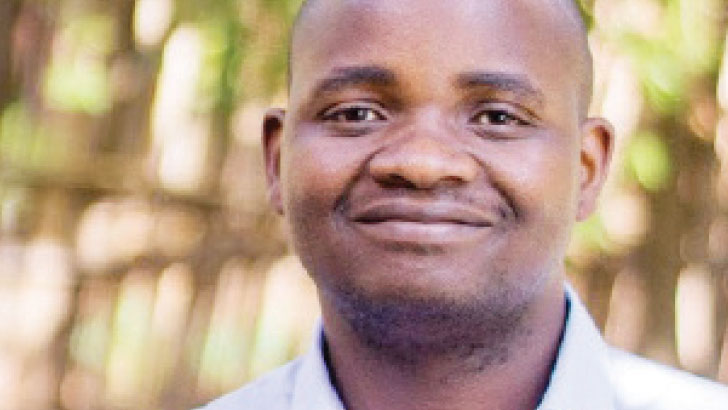‘Continue to adhere to Covid-19 measures’
In the past two weeks, health experts have cautioned Malawians to continue observing all Covid-19 preventive measures following fears of a third wave as other countries across the globe are observing urge in the number of new cases, admissions and deaths. Our News Analyst MERCY MALIKWA engages epidemiologist DR. TITUS DIVALA who emphasizes that caution is needed because no one knows the kind of third wave that will befall the country. Here are the excerpts:

Q
Considering that we are recording a few cases and admissions and deaths have also been reduced, should Malawians be worried about a third wave?
A
Yes, we should be worried because waves have so far been predictably about been taking about three months apart. This time we should be cautious, not just because the third wave is coming, but also because we do not know the kind of third wave we will get. Our first wave was mild, our second was really bad, and one wonders whether the next may be worse. The key drivers of disease and death burden being the continuously evolving biology of the virus and the difficulty of maintaining restrictions for a long time.
Another indicator for imminent third wave is the South African Covid-19 trends. Most of the times, our case numbers start increasing a few weeks after South Africa. At the moment, the South Africa health minister has sounded the alarm because their numbers have started showing clear signs of a new wave. Malawi should, therefore, watch out and consider putting strong measures both within country and most importantly at entry ports.
QOf late, some people have relaxed and are not following Covid-19 preventative measures, how can government and other stakeholders address this?
A
The relaxation out there is simply because it is not easy, and it is costly to stay restricted for long durations, life is meant to be enjoyed and the Covid-19 way just isn’t the way. Unfortunately, to enjoy life, we have to live first a privilege Covid-19 threatens to take away.
Key is to carefully keep track of the epidemic status and raising and lowering restrictions according to the trend rather staying constantly restricted. On individual level, ensure that you adhere to measures as soon as government announces them. This includes taking the vaccine. The vaccine is one tool that promises better outlook for the next wave. If most at risk people are vaccinated, we may have fewer deaths.
QThere are fears that the new cases which were registered at Salima Sugar Company are of a new variant which is fast spreading in India, is there anything that can be done to ensure that it doesn’t spread to more people here in Malawi?
A
Yes, epidemiological speaking, we already have the new variant that was first noticed in India, pending genetic confirmation. This, however, should not be the only concern because new variants are rising everywhere and frequently.
Q
Should a worse third wave strike, is the country’s health system adequately prepared or there is need to do more?
A
We have experienced two waves already, so generally speaking, the health system is ready. However, readiness can be better interpreted after breaking the problem down into the pieces that need to be ready.
First, we need access to the vaccine, the proven method for preventing death. Unfortunately, many have not taken the vaccine and the country so far only managed to secure a few doses. Ideally, if we managed to vaccinate everyone aged 50 and above, we would not expect to see a lot of deaths in any coming wave.
Secondly, we need a detailed surveillance system that is able to give a high-resolution picture of the epidemic from all angles of the nation. This has been a problem, but we have been improving.
Thirdly, we need access to treatment. Unfortunately, we still are extremely far behind in terms of number of well-trained personnel and litres of oxygen available/produced per day versus the demand.
Fourthly, we need to ensure that all other health services are continuing their lifesaving roles regardless of our actions on Covid-19. This too requires personnel and infrastructure, and both have always been in short supply.
QWhat could be some of the reasons why there has been a decrease in cases as well as admissions and deaths being registered?
A
The decrease is part of the natural course of an outbreak. With time, the disease runs out of new people to infect and fails to proceed in part because most would have built up some immunity.
Q
Was the relaxing of Covid-19 preventive measures, more especially number of people allowed per gathering, a right call considering that there is a threat of a third wave?
A
It was a right call. What really matters is whether we have adequate surveillance eyes to notice, in a timely manner, when it is about to strike again so that measures be resumed. Also, it is important to note that some measures will still need to stay on such as masks, especially in indoor settings. I call masks and physical distancing as our insurance for a free Malawi in the Covid-19 era.n





